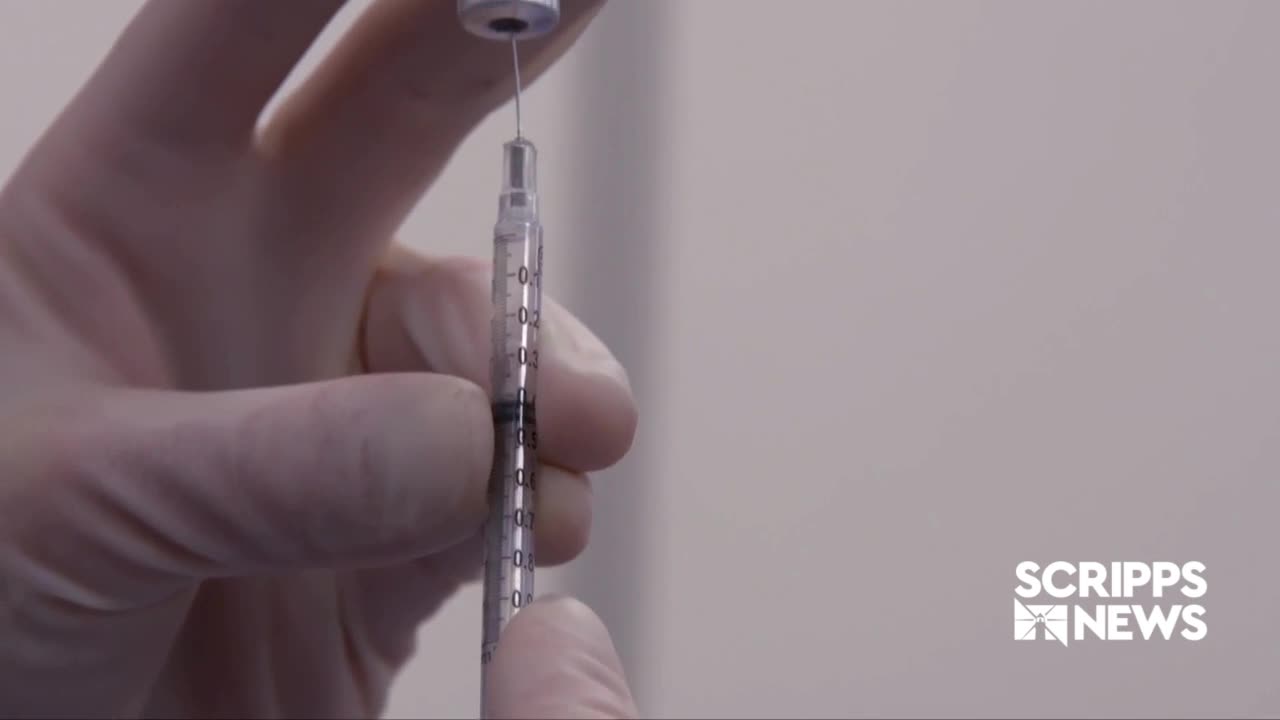The Centers for Disease Control and Prevention’s Advisory Committee on Immunization Practices voted on Thursday to change its age recommendations for the measles, mumps, rubella and varicella (MMRV) vaccine.
The vote was held during the first of two days of meetings to discuss potentially changing recommendations for a variety of vaccines, just days after five new members were added.
The ACIP provides the federal government with guidance on vaccines. Although the CDC makes the final decisions, the panel’s advice often shapes medical guidance nationwide.
In an 8-3 vote, the panel decided to change the recommended minimum age for receiving the MMRV vaccine, which combines the MMR vaccine and the chickenpox vaccine, to 4 years old. The previous guidelines recommended MMRV for children aged 12 months to 12 years old.
Tuesday's meeting kicked off with some tense comments from ACIP chair, Dr. Martin Kulldorf.
"We are currently experiencing heated controversies about vaccines, and a key question is: Who can you trust? Here is my advice. When there are different scientific views, only trust scientists who are willing to engage with and publicly debate the scientists with other views. With such debates, you can weigh and determine the scientific reasoning by each side, but without it, you cannot properly judge their arguments," Kulldorf said.
He then challenged the former CDC director and leaders who resigned to participate in a live public debate, "if they want to be trusted."
The ACIP considered evidence on differences in febrile seizures between children who receive the MMR and varicella as two separate, simultaneous shots versus one combined MMRV shot. Despite concerns, presenters said there is “no evidence of significant differences in incidence” between the two methods.
RELATED STORY | West Coast states, Massachusetts issue vaccine guidance amid CDC turmoil
During the deliberation, President of the American College of Physicians Dr. Jason Goldman said he was concerned about the confusion that changing the MMRV vaccination guidance would lead to.
"You are taking away the choice of parents to have informed consent and discussion with their physician on what they want to do for the health and benefit of their children," said Goldman. "You're not looking at all of the aspects of how we evaluate vaccine implementation. You're looking at very small data points and misrepresenting how it works in the real world and how we take care of our patients. So no, this was not a thoroughly vetted discussion."
As for the hepatitis B vaccine, Dr. Adam Langer with the CDC, who presented during the committee meeting, said, "I have not seen any data that says that there is any benefit to the infant of waiting a month, but there are a number of potential harms to the infant of waiting a month."
Dr. Cody Meissner, a member of the ACIP who has served on other health care committees, said the hepatitis B shot is "an absolutely safe vaccine" and did not understand why it was being questioned.
The committee will face key decisions on this year’s COVID-19 booster in its meeting on Friday. Earlier this year, the Food and Drug Administration limited approval of COVID-19 vaccines to people 65 and older and those with preexisting health conditions. Following the FDA’s announcement, pharmacies in some states stopped offering the shots to all adults.
The meeting comes a day after Dr. Susan Monarez, the ousted director of the CDC, told a Senate panel that she was fired for “holding the line on scientific integrity.”
“Secretary Kennedy demanded two things of me that were inconsistent with my oath of office and the ethics required of a public official. He directed me to commit in advance to approving every ACIP recommendation regardless of the scientific evidence," she said. “He also directed me to dismiss career officials responsible for vaccine policy without cause. He said if I was unwilling to do both, I should resign. I responded that I could not pre-approve recommendations without reviewing the evidence.”
RELATED STORY | What is the CDC's vaccine advisory panel and why is it so influential?
Earlier this year, Health and Human Services Secretary Robert F. Kennedy Jr. removed 17 members of the ACIP and appointed 12 new members — five of whom were just appointed last week. The reconstituted panel includes several medical professionals skeptical of past vaccine policies.
The committee’s recommendations to the CDC influence the federal government’s vaccine schedule — including what vaccines are covered by insurance, provided for free, or recommended by pediatricians.












